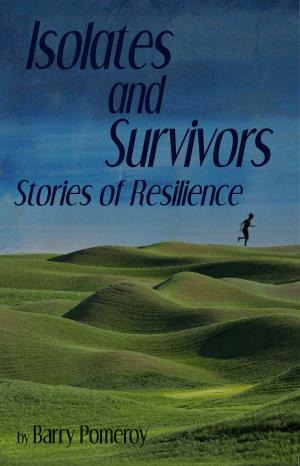| Author: | Barry Pomeroy | ISBN: | 9781310700538 |
| Publisher: | Barry Pomeroy | Publication: | December 11, 2014 |
| Imprint: | Smashwords Edition | Language: | English |
| Author: | Barry Pomeroy |
| ISBN: | 9781310700538 |
| Publisher: | Barry Pomeroy |
| Publication: | December 11, 2014 |
| Imprint: | Smashwords Edition |
| Language: | English |
Working After the Collapse is a series of interlaced stories set in the different provinces and territories of Canada in a vaguely futuristic time when the worst implications of Peak Oil have come to pass. Different characters for each story tell of the collapse of society from their own perspective. Mothers worry about their children’s future, entrepreneurs about their business schemes, kids about being left alone and defenceless in a brutal world, and workers try to balance their need for employment against the criminal acts they are called upon to perform.
The disparate portraits of this crumbling society show the growing debility of government when dealing with the oil industry as well as the increasing power of multinationals. Land ownership undergoes a radical change and Monsanto seizes vast tracts of land. Modified legislation allows businesses like Waymart, anxious as ever to capitalize on human misery, to exploit the cheap labour that is a result of mass unemployment.
These stories detail the disintegration of infrastructure, including hydro-electric power and telephone, train, truck, car and bus transport, and the growing desperation of the people. The representation of this era is not entirely a portrait of misery, however. The various narrators offer an inspiring view of our unwillingness to surrender our dignity even in inhumane circumstances.
Working After the Collapse is a series of interlaced stories set in the different provinces and territories of Canada in a vaguely futuristic time when the worst implications of Peak Oil have come to pass. Different characters for each story tell of the collapse of society from their own perspective. Mothers worry about their children’s future, entrepreneurs about their business schemes, kids about being left alone and defenceless in a brutal world, and workers try to balance their need for employment against the criminal acts they are called upon to perform.
The disparate portraits of this crumbling society show the growing debility of government when dealing with the oil industry as well as the increasing power of multinationals. Land ownership undergoes a radical change and Monsanto seizes vast tracts of land. Modified legislation allows businesses like Waymart, anxious as ever to capitalize on human misery, to exploit the cheap labour that is a result of mass unemployment.
These stories detail the disintegration of infrastructure, including hydro-electric power and telephone, train, truck, car and bus transport, and the growing desperation of the people. The representation of this era is not entirely a portrait of misery, however. The various narrators offer an inspiring view of our unwillingness to surrender our dignity even in inhumane circumstances.















